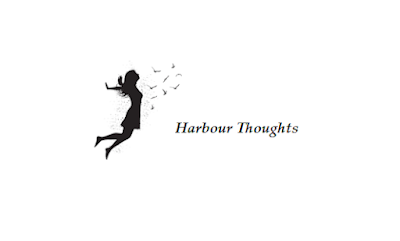Dolly
By Gilbert Parker
King Rufus he did hunt the deer,
With a hey ho, come and kiss me, Dolly!
It was the spring-time of the year —
Hey ho, Dolly shut her eyes!
King Rufus was a bully boy,
He hunted all the day for joy,
Sweet Dolly she was ever coy:
And who would e’er be wise
That looked in Dolly’s eyes?
King Rufus he did have his day,
With a hey ho, come and kiss me, Dolly!
So get ye forth where dun deer play —
Hey ho, Dolly comes again!
The greenwood is the place for me,
For that is where the dun deer be,
And who would stay at home,
That might with Dolly roam?
Sing hey ho, come and kiss me, Dolly!
Poem Analysis:
Gilbert Parker’s poem “Dolly” is a playful, flirtatious piece filled with pastoral imagery, folk rhythm, and romantic whimsy. On the surface, it’s a light-hearted tale of King Rufus hunting deer and wooing a woman named Dolly. But beneath its cheerful cadence and musical refrains lies an exploration of power, desire, innocence, and the contrast between courtly pursuit and natural simplicity.
Structure and Tone
The poem follows a ballad-like structure, rich with repetition and rhyme. The recurring chorus — “Hey ho, come and kiss me, Dolly!” — gives the piece a song-like quality, echoing the rhythm of traditional English folk songs. This refrain, paired with its playful rhyming and singsong tone, injects the poem with levity and charm.
The mood is flirtatious and merry, fitting for the springtime setting. Yet, it subtly flirts with more complex ideas — such as seduction, resistance, and the game of romantic pursuit.
Characters: King Rufus and Dolly
King Rufus (likely a fictionalized or symbolic character, rather than the historical King William II) is portrayed as a bold, carefree man — a “bully boy” — who delights in hunting and courtship. The poem links his love of the hunt with his pursuit of Dolly, subtly blurring the line between game and romance. His repeated invitation — “Come and kiss me, Dolly!” — suggests a confident, perhaps even roguish, suitor.
Dolly, on the other hand, is “ever coy.” She’s flirtatious in her own way, embodying the traditional role of the demure but desirable maiden. Her coyness isn’t rejection but part of the playful ritual — suggesting mutual attraction hidden beneath bashful resistance. The line “Who would e’er be wise / That looked in Dolly’s eyes?” implies her charm disarms reason itself.
Nature as a Romantic Backdrop
The greenwood — the forest — is more than a setting; it is a space of freedom, desire, and youthful indulgence. In medieval and Renaissance poetry, the greenwood often symbolized a break from social order, a place where rules are loosened and love is freer. Parker draws on that tradition here. The dun deer and the spring season highlight a time of fertility and natural longing, mirroring King Rufus’s romantic pursuit.
The line “And who would stay at home, / That might with Dolly roam?” emphasizes this contrast between dull domesticity and the vibrant, adventurous life of the forest.
Themes: Courtship, Nature, and Escapism
- Courtship as Play: The poem presents love not as a solemn affair but as a game, a back-and-forth between suitor and beloved. It reflects the stylized flirtation common in pastoral and romantic poetry.
- Power and Seduction: Though King Rufus is the “king,” Dolly holds power in her coyness. The balance of pursuit and resistance reveals that romantic power is shared — and perhaps even leans in Dolly’s favor.
- Nature and Freedom: Escaping to the greenwood is symbolic of shedding social expectations. The poem aligns love with nature — untamed, seasonal, and full of potential.
- Youth and Joy: There is no tragic undertone here — just the joy of spring, the chase of romance, and the lighthearted folly of being young and enchanted.
“Dolly” is a bright, melodic poem that uses simple language and traditional motifs to express timeless human experiences — the thrill of pursuit, the dance of courtship, and the joys of escaping into nature. While light in tone, it draws on deep-rooted themes in English literature, blending the playful with the poetic. Gilbert Parker, through his charming chorus and idyllic setting, invites readers to join in the merry game of love — where kings chase deer and hearts alike, and coy glances are as powerful as crowns.
